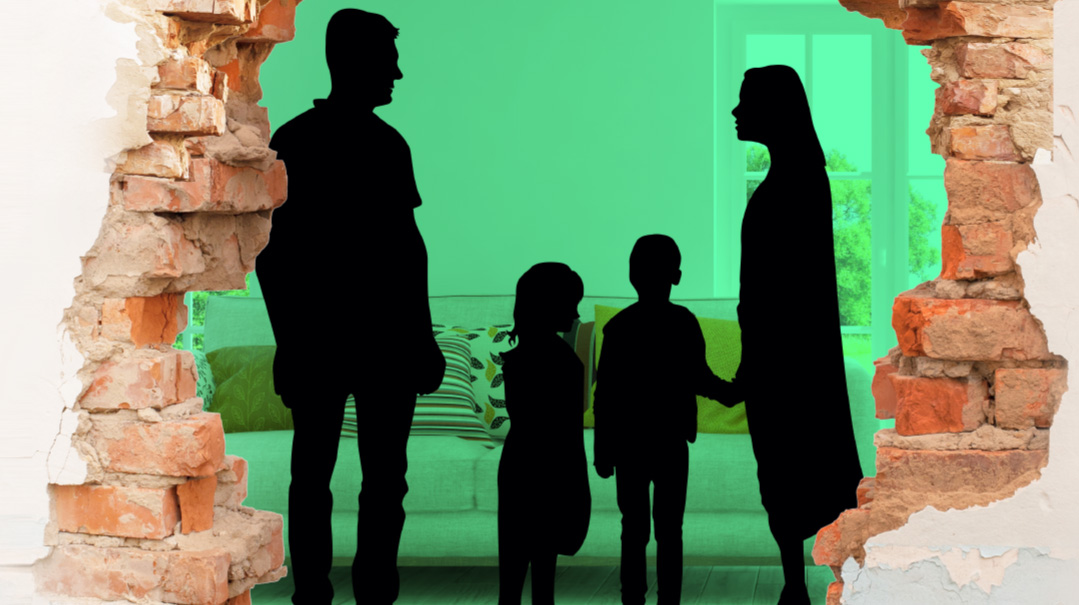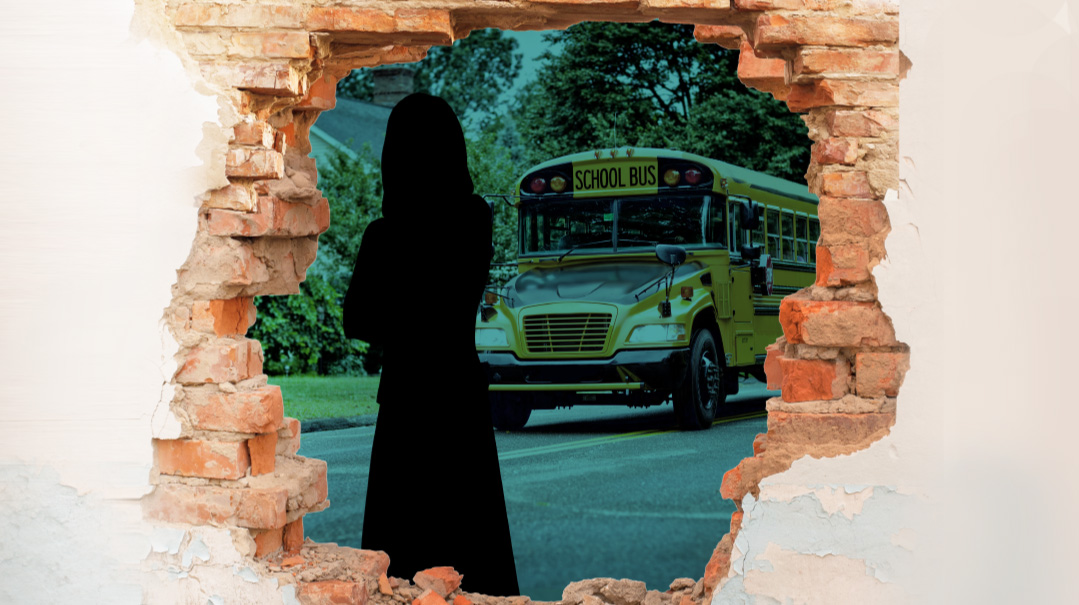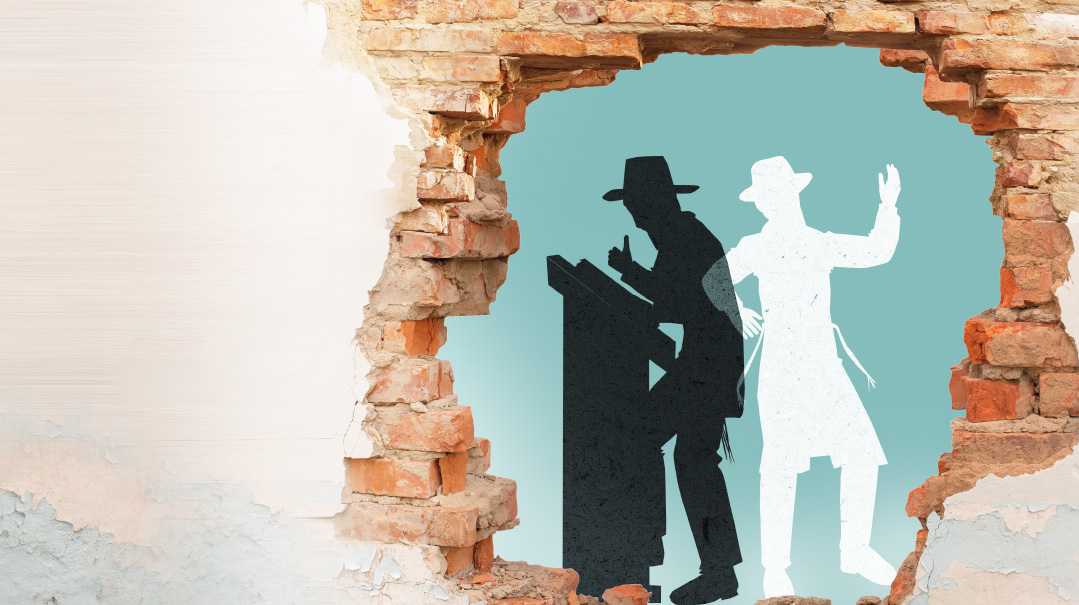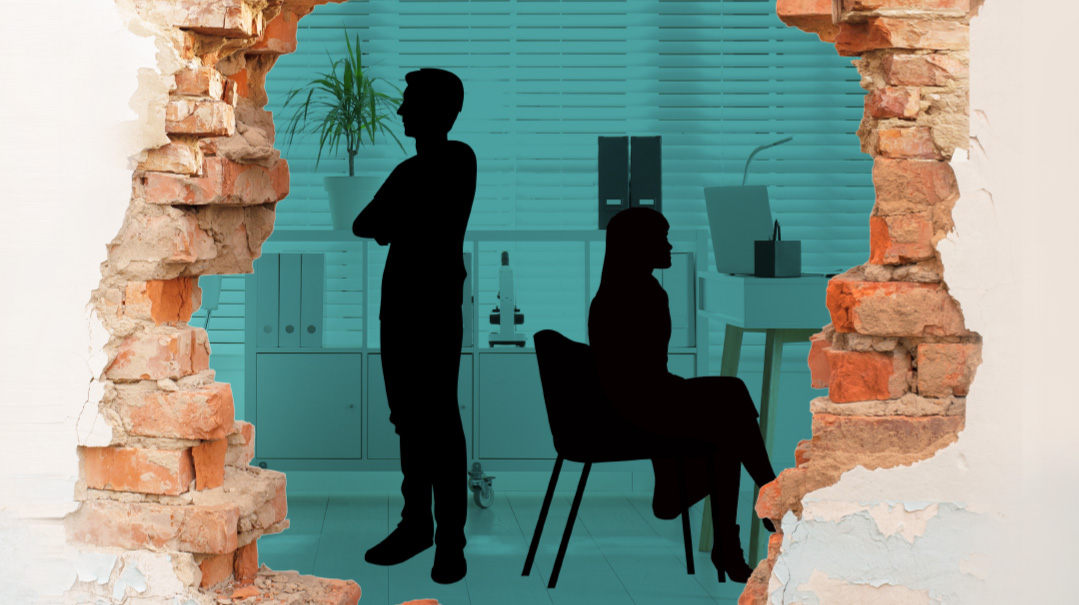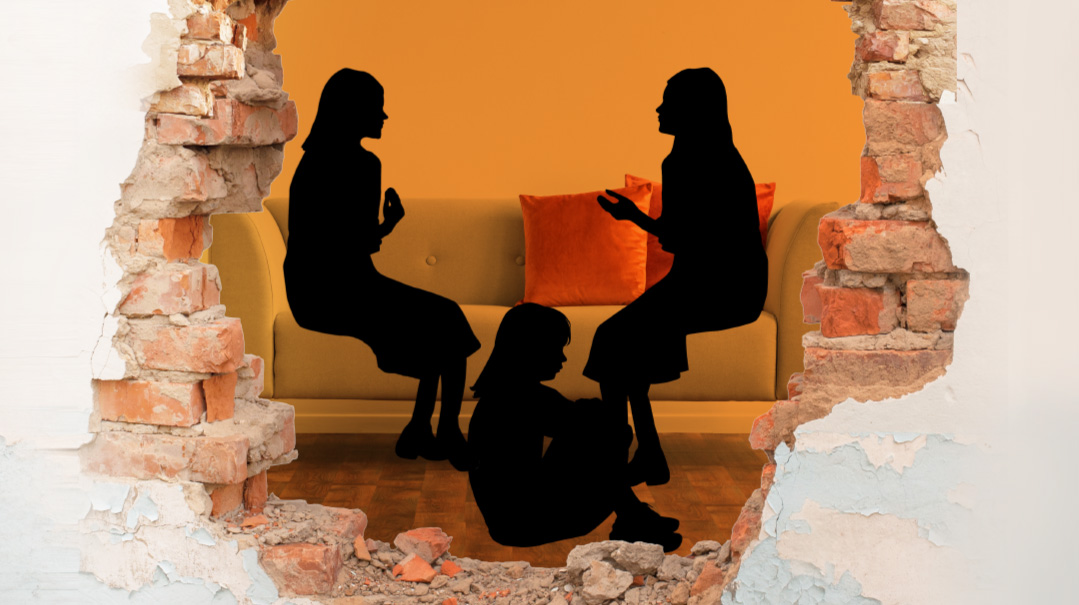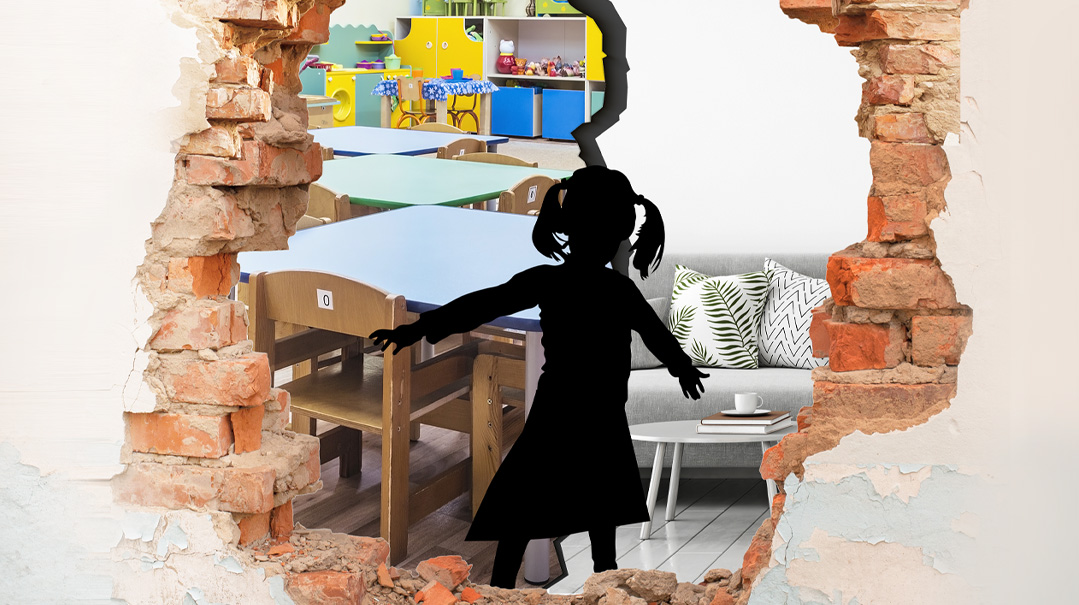My House Rules Are Being Flaunted

You’ve already understood and are successfully doing what many parents and grandparents fail to do: letting go
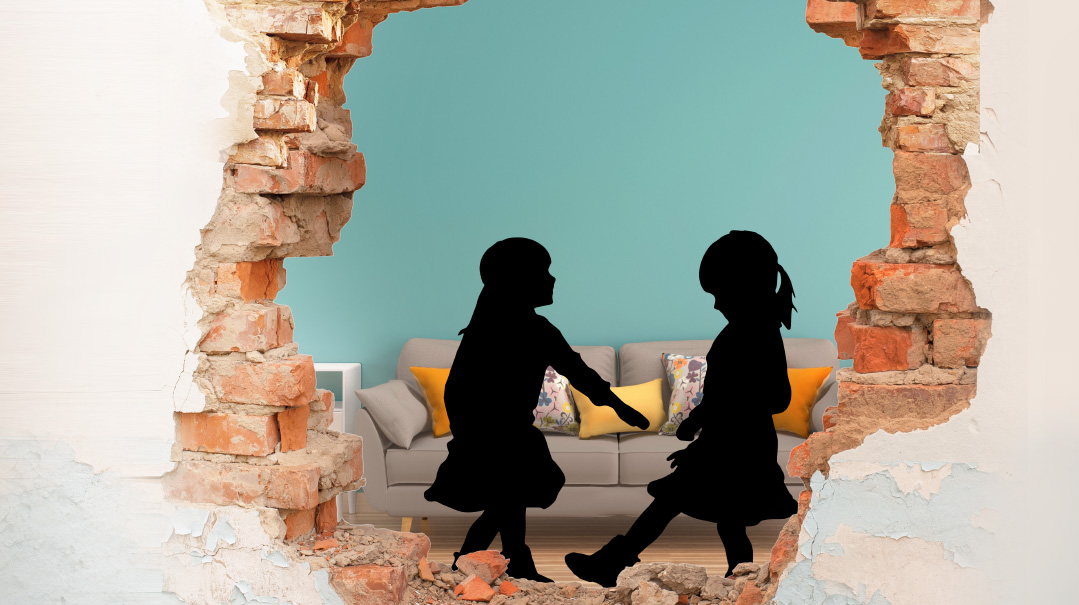
Moderated by Faigy Peritzman
I
have many married children, baruch Hashem, and one of my top priorities is maintaining a good relationship with them, supporting them in their decisions and respecting them as parents and as adults. This approach has stood me well for many years, but I’m faced now with a situation that’s rapidly spiraling out of control.
One of my daughters-in-law is a big advocate of gentle parenting. She and my son don’t believe in strong discipline or punishments. In general, they have very few consequences for bad behavior, but instead try to draw the children into discussions and understanding with love.
While I’m not condoning or condemning the approach, I’m having an issue with one of their daughters who’s very belligerent and bullying — toward her own siblings and her cousins. When I’m at their house, it’s hard to see this child act aggressively, often hurting her siblings physically, without any repercussions from her parents.
But the situation gets even harder when this granddaughter is in my home, disregarding my house rules and terrorizing the other visiting cousins. While her parents seem to understand that I need to enforce my house rules, they don’t extend that understanding when I try to place boundaries regarding interactions between this child and her cousins. They insist that I should leave “the chinuch” to them. Yet, how can I, when they aren’t managing to keep the situation under control?
Rabbi Avrohom Weinrib is the rav of Congregation Zichron Eliezer in Cincinnati, Ohio.
Let me begin by commending your wise parenting. Your opening sentence describes three components to your approach in relating to your children, each worthy of praise. You reference your emphasis on “maintaining a good relationship.” The word “maintaining” implies that this isn’t something that happens by itself. It takes work and effort, both of which you’re investing.
Second, you’re “supporting their decisions.” That means you’re stepping back and giving them the space and confidence to be parents — which includes making mistakes. Sometimes, letting your child learn from her own mistakes is the best thing a parent can do, and it seems like you’ve got that figured out.
Lastly, you’re “respecting them as parents and adults.” I’m not there, but I assume that means that you do your fair share of tongue biting even when you may have very good advice to offer.
Your very ability to demonstrate good parenting toward adult children is what is making this particular challenge so difficult. You want to give them the autonomy to be parents even if you feel they are making a mistake, but others are getting hurt in the process. What is your role in this situation?
I’d like to share two points. The first is general and doesn’t speak directly to the issue, but deserves to be said nonetheless. Your concern is your grandchild bullying. Here’s what you have to know: Bullying kills.
I know that sounds extreme, but it’s the reality. Following one of the recent horrific mass shootings at a school, a friend of the perpetrator was quoted as saying, “He wasn’t very much of a social person after being bullied for his stutter. I think he just didn’t feel comfortable anymore at school.” This boy was a victim of bullying, and this led him to commit the most horrific acts possible. Because bullying kills. It may be an extreme reaction, but the emotions that led to such actions are not extreme. Children who are bullied suffer incredible pain.
I recognize that bullying is an overused phrase and not always an accurate portrayal of what’s taking place, but you use descriptions such as “aggressive,” “hurting physically,” and “terrorize,” and that certainly sounds like bullying to me. Your children may likely be unaware of the effects of bullying, and while you generally like giving them space to call the shots themselves, I believe it is important to share with them in a nonemotional conversation, the concerns you have. I would not recommend openly characterizing their child as a bully, but I do recommend sharing the above information with them and commenting that, in light of this, their children’s behavior should certainly be looked into more carefully.
All this leads to the second point. As parents, and certainly as grandparents, our job is not to control our children. It doesn’t work, and it’s not what chinuch is about. It is our job, however, to control the environment we’re responsible for, in this case, your home. If one of your grandchildren is being terrorized by his cousin, you cannot stand by and allow it to happen. This is not about leaving the chinuch to your child. It’s about your responsibility to make sure your home is a safe place.
I suggest communicating to your child that you’re not trying to be mechanech; you have an achrayus to make sure your home is safe, and you’ll do what is necessary to reach that goal. Explain that you realize that this might make your children uncomfortable but, at the same time, make your position clear: This is my home, and I will ensure it remains warm, safe, and welcoming. Period. And of course, being the excellent parent that you are, conclude by reiterating to your children that you love them more than they could ever imagine.
May you have continued hatzlachah navigating the role of a parent/in-law/grandparent, and you should only have tremendous nachas from all your children and grandchildren!
Chana Levitan MS is the author of I Only Want to Get Married Once and That’s Why I Married You. She’s a senior lecturer at Neve Yerushalayim, instructor at the Neve Family Institute, and a couple’s therapist in private practice.
First, I want to validate how difficult and painful it is as a parent, to watch your child pursue an avenue of chinuch that seems to be producing unhealthy or even destructive results. Although it’s clear that you’re trying not to condemn the ‘gentle’ approach, it’s understandable that some of your frustration with the approach is leaking out.
This type of intergenerational struggle over boundaries is extremely common. A couple recently consulted with me about the opposite problem: One of the grandmothers was extremely lenient; she wanted to hold the baby anytime the baby as much as whimpered. The parents felt that this would spoil the baby. Both their situation and your situation involve aspects of the mitzvah of kibbud horim. Therefore, I checked in with a rav to make sure that my response is in line with halachah.
In response to your question:
It sounds like when you’re in your son’s home, you’re valiantly stepping aside, allowing him and your daughter-in-law to educate their children as they deem fit.
However, when this granddaughter is in your home, you certainly have the right to set the rules. But you’re not being allowed to do so. Your frustration is completely understandable.
Practically, I see four possible choices for you. You need to consider each of these options (or any others I might have overlooked) and make a cost-benefit analysis of them all:
Put your foot down regarding any behavior that you consider “bullying.” Insist that this type of behavior cannot take place in your home. Obviously, this might mean that this son and daughter-in-law won’t visit you with their children. It’s essential to estimate what other repercussions might result from you putting your foot down.
Let go of your rules/boundaries and allow the situation to continue to play out as is.
Have the parents of the cousins discuss this issue with the parents of this granddaughter, thus allowing you to stay out of it. I don’t typically recommend this option. However, there are families in which this could work.
Speak to a rav or therapist together with your son/daughter-in-law to try to come up with a mutual solution.
Whatever you choose, there’s also inner work you can do to help this situation not spiral out of control.
One of my favorite quotes is, “Your energy introduces you before you even say a word.” We often overlook the effect of our energy on others. Shlomo Hamelech takes this truth one step further by teaching us, “As in water, face reflects face, so do the hearts of men” (Mishlei 27:19). In other words, our energy is contagious. For example, if a school principal sees a student give him a look of hatred, the natural human response is to reflect this hatred right back to the student. To prevent this natural response, the principal would have to do inner work if he wants to remain an effective adult.
In your situation, although your frustration is understandable, it’s entirely possible that it’s leaking out in front of your son, daughter-in-law, and granddaughter more than you’re aware of. This is human. For example, when you see your granddaughter, if you’re thinking something like, “Oy, here’s the bully,” she will pick this energy up from you on a subconscious level. And as Shlomo Hamelech points out, this could add fuel to the fire.
Suggestions for the inner work:
Breathe through the frustration (“When you own your breath, no one can steal your peace”).
Remember the big picture: the brachah of your entire, lovely family.
As the wise matriarch that you are, you already know this, but we all need to be reminded, especially in the midst of a nisayon. Work to anchor yourself more in emunah. If you don’t spiral out of control, your centered presence will help everyone else not to spiral out of control as well. One great way to anchor yourself, is to keep in mind: These nisyonos are ultimately growth opportunities in disguise.
Wishing you tremendous hatzlachah.
Rabbi Efraim Stauber is an acclaimed lecturer and Torah educator, best known for transforming esoteric Torah ideals into practical and accessible achievements. His classes and seminars have helped hundreds grow in topics such as emunah, relationships, Shabbos Kodesh, and teshuvah. Rabbi Stauber lives in Givat Ze’ev with his wife and children and maintains a private counseling practice.
The very premise of your question is sophisticated. You’ve already understood and are successfully doing what many parents and grandparents fail to do: letting go and allowing the next generation to assume their own responsibility. My saintly stepfather Harav Yehudah Jacobs ztz”l used to quote Rav Hirsch who referred to his parents as the teachers of his youth and the advisers of his older years. Notice the distinction here.
The ability to gracefully step out of active duty and into an adviser role requires the gevurah of silence as well as powerful emunah in Hashem, because obviously, we know better than our children! They’re just starting out, and we have decades of experience. As a matter of fact, we learned while we “experimented” on them.
Therefore, I commend you on your initial desire of wanting to maintain your distance.
I’m also assuming that you’ve already tried communicating your concerns with your children. You and they seem like intelligent and emotionally aware human beings, and obviously, calm and respectful communication would be the best way to arrive at a resolution. However, if that wasn’t effective, then it seems there are two unique factors present in this situation:
1) Out of control spiral: It’s one thing to let go of control when the stakes are relatively low. Here, however, it appears we’re dealing with an unfolding catastrophe. This young lady (let’s call her Chany for simplicity’s sake) is growing into a bully. This can have horrible consequences both for herself and her victims. Chany’s antisocial behavior will leave her friendless and punished by society. Chany deserves the help of the adults in her life to learn adaptive social skills.
2) Other victims: This isn’t just about Chany’s chinuch. What about the agmas nefesh and possible damage this developing bully is causing her victims, many of whom are her siblings and cousins? How can you watch your other grandchildren get physically and emotionally attacked and not intervene?
Having said that, let’s view the flip side. Your relationship with your children is at stake. You have a lot to lose here. If you intervene (even in this one instance) you risk alienating your children. Furthermore, you don’t really have the power to fix this situation entirely, so should you even try?
Let’s see if we can separate the intense emotional pain from the situation and try to approach this intellectually and theoretically.
The first realization that we need to accept, is that (barring yeshuas Hashem), either path you take will have a cost. Every choice in life is like this. The big question here is, what, exactly, is your role? What is your responsibility and what is not?
I’d recommend that you let Chany’s parents know that, in general, you defer to their choices regarding the chinuch of all their children.
At the same time, you retain your right to be a responsible adult bystander. As such, you will protect victims of aggression like any other public minded citizen. Important: This is not a trick. I mean this literally. Even in the face of bullying, you must resist the urge to be mechanech Chany, and focus solely on protecting the innocent.
That may mean swooping in to offer the victim a hug or kiss, offering a piece of Bubby’s delicious cake or anything else in your inexhaustible arsenal of unconditional love. In your home, you must have house rules designed to create a place of safety for all your grandchildren.
It’s essential to be very clear in your intervention. Don’t scold or otherwise educate Chany. Rather, protect the victims, and keep them safe physically and emotionally.
This will have an impact on Chany as well. Current wisdom supports the practical methodology of helping bullies learn better social skills by draining the negative attention their behavior gives them. Instead of focusing on the bully, rather give the love, empathy, and attention to the victim.
This approach isn’t limited to bullying. Physically dangerous, objectively damaging, and illegal behavior also qualify as unacceptable, and regular wisdom and rules are suspended. You have the right and the need to protect those whom you love.
I’d like to conclude with a quote from Mrs. Sarah Chana Radcliffe that my wife had hanging on our fridge for a while. It went something like this: “If it isn’t dangerous, illegal, expensive, or very damaging, let people do things their way. They will like you more for it.”
(Originally featured in Family First, Issue 802)
Oops! We could not locate your form.

